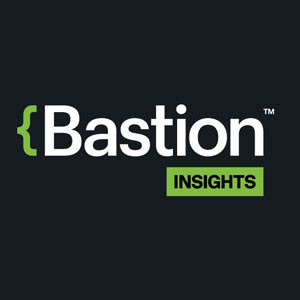
Posted on: December 11, 2020
by Chris Hubble, CEO at Bastion db5
What does 2021 look like for the market research industry? For over 20 years, market researchers have been under constant pressure to prove the value of our services, and nothing has changed in that regard. As we face a pandemic that has cut into corporate and client profits, market researchers are once again called upon to innovate and show our value.
Budgets for 2021 are almost certain to be lower than in 2020. In the U.S., Gartner’s research presents a sad but realistic picture with almost half of CMOs experiencing mid-year budget cuts as a result of the pandemic. According to a survey by Dun & Bradstreet, 70 percent of senior marketers in the U.K. say their budgets have been cut as a result of COVID-19. Yet, 76 percent are facing increased pressure to deliver leads even during the pandemic. These cuts obviously affect funds that could be used for market research.
However, there are ways to adapt during this prolonged period of turmoil. Here are a Bastion db5’s top five trends and predictions for market research in 2021:
- Be prepared for budget cuts
We should all plan for budgetary pressures. As CMOs plan their own future budgetary cuts rather than gambling on budgets bouncing back, they will eliminate non-essential costs and attempt to renegotiate current contracts and plans. Market research firms need to act now to plan for how these cuts will affect their businesses. There may not be more PPP or other government support, so banking on one to make EBIT goals would be reckless. These budget changes will drive most market research trends in 2021, acting as a catalyst for continuing what we’ve seen so far. - Automation and AI adoption will increase
Budget pressures will further accelerate the rise in spending on new, DIY, and automated platforms, that are more affordable than full-service market research partners. Client-side market research professionals may also look more aggressively for customizable platforms that can help automate their market research needs. There’s a huge potential for market research agencies that can crack and simplify the automation process of converting data into usable insights as current tools are too technical, too clunky, and too labor-intensive. Keep in mind:
- Over the next decade, the raw data material for market research will grow dramatically in volume and become even more affordable.
- Data mining, social-media listening, web analytics, point-of-sale data, customer relationship management, insight communities, and neuromarketing will expand rapidly. These tools will reduce—but not eliminate—the use of survey research.
- The power of multi-sourced data will be in merging it and presenting holistic insights across sources, so any emerging tools must be able to handle a myriad of data types and the enormous volume of input.
- Digital transformation and going virtual
The pandemic has accelerated many organizations’ moves online. Gartner notes, “In 2020, investments in paid, owned and earned digital channels now account for almost 80 percent of multichannel budgets, with digital advertising and search advertising taking nearly a quarter (22 percent), social marketing (11.3 percent) and website (10.4 percent) topping the list.” If clients and marketers are diving into digital, then market research needs to better cater to these channels. Digital tagging is a start, but GDPR and recent government oversight on privacy mean tagging is available on just a fraction of digital platforms, so we need to develop some additional strategies.
Market researchers shouldn’t wait for face-to-face groups to come back. They need to start moving qualitative projects to a virtual setting now. Then, when face-to-face meetings finally do become normal again, some of the more traditional market research practices can be reincorporated. Market researchers should be flexible, ready to embrace virtual tactics while preparing to grasp the opportunities this variable environment provides by combining old and new techniques.
- Diverged offerings lead to specialization
The market will continue to diverge between automated data collection platforms and insights consultants. CMOs don’t just want cost savings, they want increased value and ROI. Automated platforms can’t always provide transformative insights, but consultants can. This will inevitably mean more specialization. Large “do it all” conglomerates are already being broken up. To diverge and provide true insights, a market research consultant will need to specialize, knowing their area of expertise better than the client knows their business. - True agility
Being adaptable is a good idea at the best of times—during unstable times it’s a necessity. Prepare in advance for all eventualities. Don’t just expect disruptions, but actively go looking for them and be a source of innovation. Different pressures require different responses and difficult decisions. Move fast when the time is right to get ahead, or you will likely be left behind.
Looking to 2021
As we look ahead to next year’s trends and predictions, one thing is certain, the pandemic has had a significant impact on all businesses, including market research. Market researchers need to expect budget cuts and must adapt to continue to prove our value. Digital and virtual offerings, automation and AI adoption, specialization and agility will all play a huge role in the year to come. The most important thing a market researcher can do now is to accept the change and look for ways to meet the moment.
Chris Hubble serves as CEO of market research and consumer insights agency Bastion db5. Before founding db5 in 2009, Chris served as Chief Executive Officer at Hall & Partners USA. Chris has 30+ years of experience in consumer insights with particular expertise in new product development, brand strategy, brand communications, and customer experience. He’s worked with over 50% of Fortune 500 clients. Bastion db5 has done work for Yahoo!, Verizon Media, and BuzzFeed.
